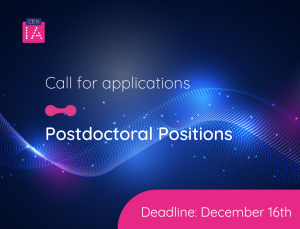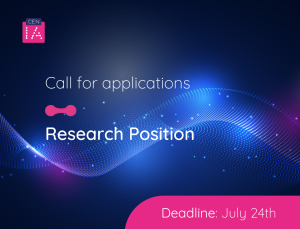
Cenia associated researcher of the “Deep Learning for Vision and Language” line (RL1), Felipe Bravo-Márquez, was distinguished with the “TWAS-LACREP Young Scientists Award 2022,” an award granted annually by the World Academy of Sciences to young researchers from Latin America and the Caribbean who make outstanding contributions in their respective fields of research.
This year, Felipe Bravo was awarded for his outstanding contributions in the area of natural language processing, development of open source software, organizing renowned international competitions and outreach initiatives in the fields of data mining, natural language processing and statistics, including lectures at several national and international universities (University of Melbourne, National Research Council – Canada, Institute of Computational Linguistics of the University of Zurich, among others), and public lectures in Spanish that he shares through his Youtube channel, which already has more than 75,000 visits.
“This distinction is very valuable. TWAS is a very important scientific academy for developing countries, supported by UNESCO. The fact that its headquarters for Latin America and the Caribbean, LACREP, has awarded me as the most outstanding scientist in the region in engineering is a great recognition,” says the researcher.
Felipe Bravo, who is also a researcher at the Millennium Institute Foundation of Data (IMFD) and an academic at the Department of Computer Science of the Universidad de Chile (DCC UChile), is a computer engineer, industrial engineer and holds a master’s degree in computer science from Universidad de Chile. He specializes in knowledge and information acquisition from natural language, covering the areas of natural language processing (NLP), machine learning (ML), artificial intelligence (AI) and information retrieval (IR). He completed his PhD at the Machine Learning Group at the University of Waikato, New Zealand, where he also worked as a Research Fellow and currently holds an Honorary Research Associate position. He worked for three years as a research engineer at Yahoo! Labs Latin America.
During his career he has developed several methods based on natural language processing and machine learning for the analysis of opinions and emotions in social networks, which have been published in prestigious conferences and journals such as IJCAI, ECAI, JMLR and Knowledge-based Systems. In addition, he has served on the committee in program of leading conferences in the field, such as ACL, EMNLP, NAACL, IJCAI and ECAI.
Felipe’s work has been cited more than 2300 times. He has co-organized several shared tasks on the automatic analysis of emotions in tweets. One of them was part of SemEval, the premier event at which to host a task in natural language processing, which attracted nearly 200 participants from around the world. He is the lead developer and maintainer of AffectiveTweets software, an open source tool for analyzing emotions and sentiment in tweets, and also leads the development of WEFE -Word embeddings fairness evaluation framework-, an open source software for measuring and mitigating bias in linguistic models and word embeddings, which has been downloaded more than 20,000 times to date.
Felipe Bravo is currently working on the DashAI project, an open-source software that will allow non-programmers to approach artificial intelligence. Cenia researchers Claudia Lopez, Iván Sipirán and Andrés Carvallo are participating in this project, which was recently applied for a FONDEF grant.
The award ceremony will be held at the Brazilian Academy of Sciences, Rio de Janeiro (Brazil), where the researcher will be invited to make a presentation of his work.







